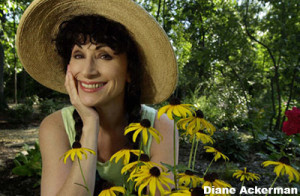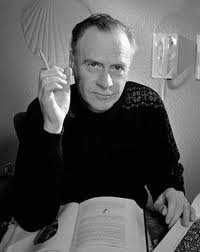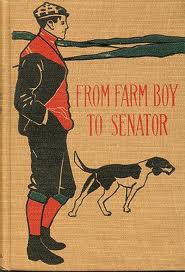Right from the start of my writing life I fell into the habit of writing everything out in long-hand on a yellow legal pad using a black Pilot pen. This was the ritual: I’d make a pot of tea (my favorite is Pai Mu Tan), grab my legal pad and pen and in slippers and robe tread the short distance through the garage—past garbage cans, rakes, shovels and bikes—to my writing studio. The brief jaunt represented crossing a threshold, shedding my domestic for my creative self.
Without glancing at my dark computer screen, I’d nestle on the bed by the window and stare into the arms of a dogwood or the yard beyond, where summer or winter if I was up early enough, I might catch a glimpse of some ever-busy bird. The literal closing of one door and the opening of another activated the genies of thoughtfulness and introspection…and soon my pen would move across the page.
When I say “ritual,” I’m not kidding. If I understand the word correctly, it means “A detailed method of procedure faithfully or regularly followed,” or ceremonies or rites used in a place of worship. The word “ritual” comes from the Latin ritus meaning “rite.”

 My own rite developed spontaneously and without effort and has more or less remained intact for decades. I’m not the only writer to have such rituals. In her book A Natural History of the Senses, in a section called “Courting the Muse,” Diane Ackerman describes the wacky, oddball compulsions of a number of artists and writers. I can’t remember which historical genius—I think it was the poet Schiller— who kept rotten apples under the lid of his desk and sniffed them when he wanted to find the right word or D.H. Lawrence who sat naked mulberry trees to write. Dame Edith Sitwell wrote sitting in a coffin, which might actually be cushy depending on the coffin. Writing is a hard and deliberate labor and a good dose of magical thinking and weird behavior often accompanies the process. But I’m convinced these strange totem acts are not opposed to logic but its ally.
My own rite developed spontaneously and without effort and has more or less remained intact for decades. I’m not the only writer to have such rituals. In her book A Natural History of the Senses, in a section called “Courting the Muse,” Diane Ackerman describes the wacky, oddball compulsions of a number of artists and writers. I can’t remember which historical genius—I think it was the poet Schiller— who kept rotten apples under the lid of his desk and sniffed them when he wanted to find the right word or D.H. Lawrence who sat naked mulberry trees to write. Dame Edith Sitwell wrote sitting in a coffin, which might actually be cushy depending on the coffin. Writing is a hard and deliberate labor and a good dose of magical thinking and weird behavior often accompanies the process. But I’m convinced these strange totem acts are not opposed to logic but its ally.
My ritual is pretty tame in comparison. I do admit to crushing stalks of lavender from my garden and inhaling the fragrance. I do admit to collecting rocks and feathers and geodes, which I keep near my writing desk, but really, in all my years of writing not much of my ritual has changed. I still walk from the house through the garage into my studio where stillness prevails. I still write on a legal pad with a Pilot pen. Except… except… my writing trance is interrupted or delayed these days by the necessity of attending to social media.
Social media. How well I understand its culture-altering importance. Isn’t Facebook credited with enabling the Arab Spring revolutions by breaking through geographical, political, and social isolation, and doesn’t it work just as well for establishing friendships, intimacies even, among strangers? If a lonely boy in Tibet finds a lonely girl in Bejing, if a Tunisian woman finds an advocate group in Nepal, I’m all for it. And I certainly understand and am the beneficiary of Facebook and Goodreads sites that keep me in touch with readers all over the country, all over the world actually, to which I say AMEN.
In fact, one of the very best aspects of becoming a known author is my connection to readers. It’s moving and exhilarating to walk into a book group that’s read my novel and hear, “Mern was MY mother!” Or, “Mern was MY sister.” I know I’ve done something right as a novelist when my characters touch on some universal aspects of human nature. One of the reasons to tell a story is to link one human heart to another. How would we know anything about each other, our sorrows and joys and wisdoms, without stories?
My social media dilemma is that while I LOVE the ability to have virtual chats with readers and to meet other writers and to let folks know about upcoming events, it takes time to be on several media platforms, and time is what presses on a writer like me whose vision and language come slowly to the page.
 The other issue with social media is that I’m squeamish about the business of asking for “likes.” Though I don’t completely understand why it is important to have a lot of them (ego aside), I do know that for authors, the more “likes” the better. Which is why you’ll understand when I ask at the end of this sentence, that if you feel inclined, to please “like” me on Facebook and share your thoughts on my Goodreads page. Despite my hesitation about social media, I embrace it because I want to stay in touch and engage with readers. Maybe I’ll just have to invent a new ritual to help me transition into my social media brain. Hmmm—what would that be? Shake a medicine rattle a hundred times? Do a dervish dance while beating my Taos drum? Please feel free to share your rituals for conjuring the muse. I really am curious.
The other issue with social media is that I’m squeamish about the business of asking for “likes.” Though I don’t completely understand why it is important to have a lot of them (ego aside), I do know that for authors, the more “likes” the better. Which is why you’ll understand when I ask at the end of this sentence, that if you feel inclined, to please “like” me on Facebook and share your thoughts on my Goodreads page. Despite my hesitation about social media, I embrace it because I want to stay in touch and engage with readers. Maybe I’ll just have to invent a new ritual to help me transition into my social media brain. Hmmm—what would that be? Shake a medicine rattle a hundred times? Do a dervish dance while beating my Taos drum? Please feel free to share your rituals for conjuring the muse. I really am curious.





